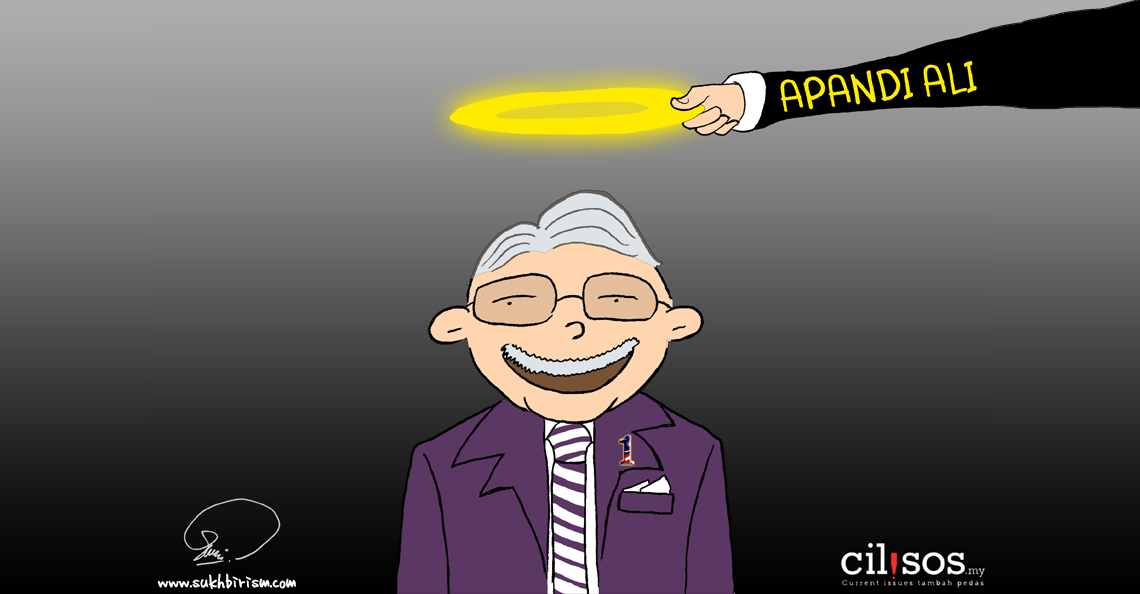OMG, did Najib just make it illegal to talk about his court case?
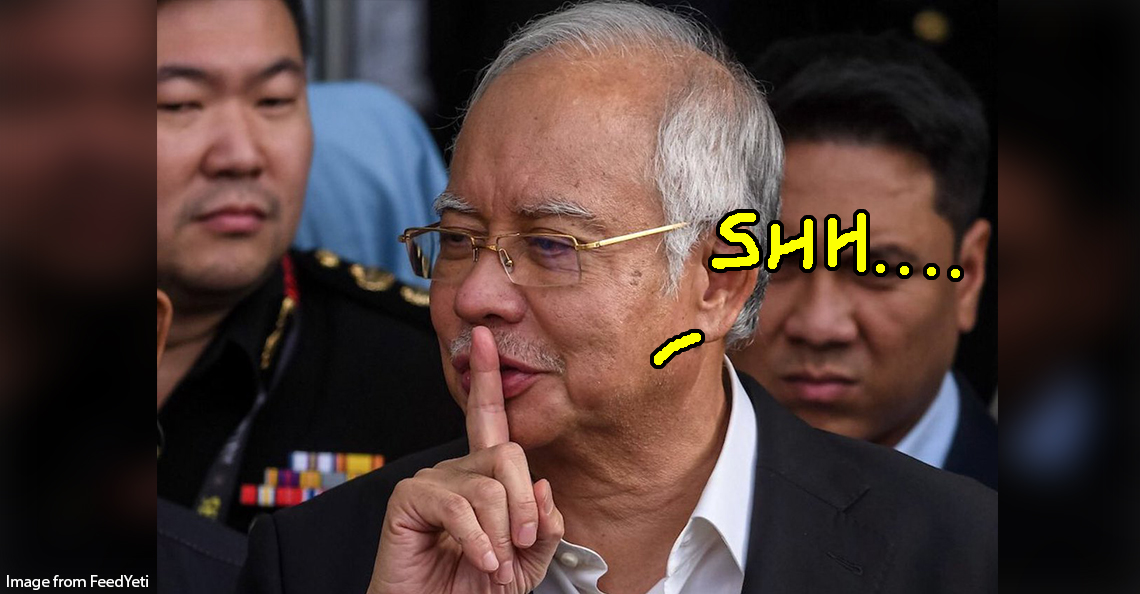
- 721Shares
- Facebook628
- Twitter9
- LinkedIn16
- Email20
- WhatsApp48
We’re currently in the midst of one of the most exciting times in Malaysian history, and I’m sure you know what I’m talking about. That’s right, Cilisos has their own cilisos! – I mean, former Prime Minister Dato’ Sri Najib has been arrested and awaits a trial. He was charged not because of his link to the 1MDB scandal tho, but instead due to his connection to funds from SRC International Sdn Bhd totalling RM42 million.
This article, however, is not about whether Najib is guilty or not. Instead, as the High Court read the charges, the judge also granted Najib and his lawyer, Shafee Abdullah, an interim gag order which bars the public from “discussing the merits of the case”.

“The primary aim is to stop anyone from making statements in the media that are seen as unfair to Najib. Statements like ‘Najib is guilty’ or even ‘Najib is innocent’ must not be made,” – Shafee Abdullah, as quoted by Free Malaysia Today
The A-G Tommy Thomas meanwhile said that the interim gag order bars only the topic of SRC International and the four criminal charges against Najib. Also, as it’s just interim, the gag order is set to end on August 8. The court would then decide if they want to extend the gag order to a full gag order that bars talk of the whole case hearing.
Also, in a weird plot twist of sorts, Justice Mohd Sofian Abd Razak, the judge in charge and the one who granted the interim gag order, is a relative of an UMNO Pahang exco member. It turns out that the judge is coincidentally the younger brother of Benta Umno state assemblyman Datuk Seri Mohd Soffi Abdul Razak.
The Malaysian Bar president George Varughese has voiced his worry that this may harm the integrity of the proceedings. Some however, have no issue, arguing that with one out of every 10 Malaysians being UMNO members, you’re bound to have some link to UMNO one way or another.
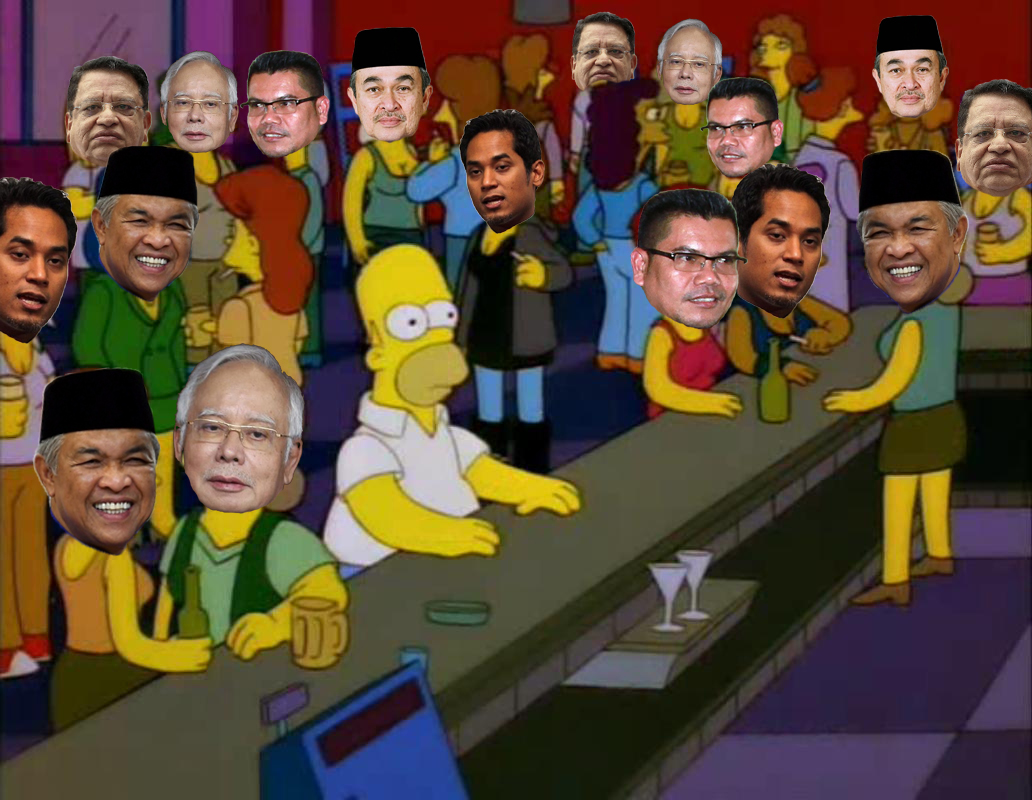
While Shafee and co may have a point with their argument over the need for the gag order, others aren’t too pleased with it at all. Human rights NGO Lawyers For Liberty has voiced their disapproval of the interim gag order, going so far as to call it unconstitutional for breaching Article 10 that guarantees freedom of speech. They also pointed out the supposed absurdity of local media barred from reporting about it while international press can still do so. Others, such as activist Fahmi Reza, have even called for press to disobey the gag order altogether:
Disobey the gag order imposed on Najib Razak's trial. It goes against the Federal Constitution and our right to freedom of speech and expression. It is a bald threat against press freedom and our right to information. #KebebasanMedia #PressFreedom pic.twitter.com/DCmPwKYvkU
— Fahmi Reza (@kuasasiswa) July 6, 2018
Here in the Cilisos office tho, after we first heard of the gag order as well as Shafee’s explanation for requesting it, we got to thinking: can the media and public opinion really sway the court so much that a gag order is needed to ensure a fair trial?
Huh, how can the media influence a trial?
The term ‘trial by media’ has been thrown around recently in light of the interim gag order, but what actually is it?

Let’s say that you’re convicted for stealing a Snickers bar from a 7-11. In a weird twist, someone uploads a video of you kicking a cat. While it has no relevance to the case, it causes a negative perception of you, which affects the court into thinking you’re a bad person, and thus finds you guilty, even if you may not actually have done so.
Essentially, a trial by media is when media reporting of a court case provokes a mob mentality among the public, stoking the perception that the person in the midst of the reports is either innocent or, in Najib’s case, guilty.
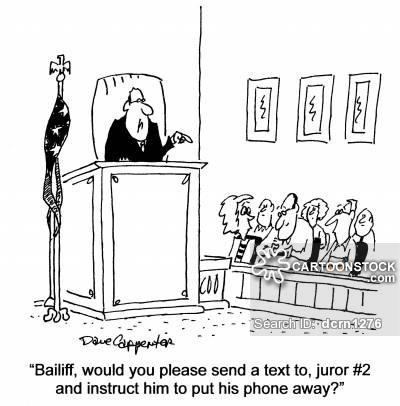
In the UK, trial by media and it’s possibility to affect court cases are taken quite seriously. There are strict laws in place that bar the UK media from reporting on cases from the moment the person in question has been reported by police. But here’s the catch: this limited reporting is to prevent jury members – often pulled from the general public – from having their perception of the case from being altered. Malaysia however hasn’t had a jury system in place since 1995!
A jury system is in place in numerous countries in the world, with the idea that the jurors – chosen from the public – represent the view of the normal person. But here’s the problem with that: they’re normal people who aren’t legally trained, and may not be as professional as a judge. They usually find it harder to control their emotions and may be affected by public opinion. That’s pretty much why Malaysia got rid of the jury system and went with only judges.
But then, if the judge is the better system, why is the judge in this case calling for the gag order? We spoke to lawyer Fahri Azzat about it, and he pointed out the irony of the judge in the Najib trial allowing the interim gag order:
“Personally, I think the judge did not make the right order there… the finding of fact and the law is both made by the judge. So unless here the judge is saying he’s not fit to decide the case and if he reads the newspaper he would be influenced by it, then he should be disqualified from hearing the case,” – Fahri Azzat, in a phone interview
Fahri added that the worry of a trial by media affecting the actual court proceedings should only be a worry in a jury system. Jurors may have their views altered if they happen to read about it in the paper or be told a rumour from family members but with judges meant to be a professional, it shouldn’t be a worry.
Despite the understanding that judges shouldn’t be affected by the media doesn’t mean that judges aren’t in reality. Indeed, Fahri himself recalls a case where public sentiment is believed to have caused an unprecedented decision in court.
The court once admitted that they changed stance due to the public
In the 1980s, Malaysia was stunned as she found herself in the midst of a legal case that threatened to spark racial and religious tension. The story goes that Susie Teoh of Kelantan who grew up a Buddhist, ran away from home and had converted to Islam when she was a few months shy of her 18th birthday. Her Buddhist father disagreed with her actions and then took the Jabatan Agama Kelantan to court to fight for his right for a say in his daughter’s religion.

The High Court decided that despite Susie being a minor at the time of her conversion, she had the right to choose her religion based on her own free will. However, her father didn’t give up, and appealed to the Supreme Court. Here, the Supreme Court overruled the High Court. They concluded that the no minor can choose their own religion without the consent of their parents, and- oddly enough – that this decision was made with the wider interests of the nation.
According to Fahri, the High Court’s decision may have been overruled due to the public opinion at the time:
“The Supreme Court made its decision and say that only a parent can decide the religion of a child. It was unprecedented as the Supreme Court said they are making this decision in the interest of the nation…. They basically took public sentiment and ran with it,” Fahri Azzat, in a phone interview
In the end however, Susie Teoh didn’t need to convert back to Buddhism, as she had turned 18 by the time the Supreme Court reached their verdict. While Fahri says they won’t admit it, he believes that it remains a prime example of public opinion seeping into the court of law.
And as for Najib’s case?
We’ll have to see if the gag is continued
As mentioned earlier, while the gag order on local media reporting about Najib’s case may be unfortunate for free speech advocates, it remains only an interim gag order. We’ll only find out if the gag order continues throughout the case on the 8th of August, when the gag order is reviewed again.
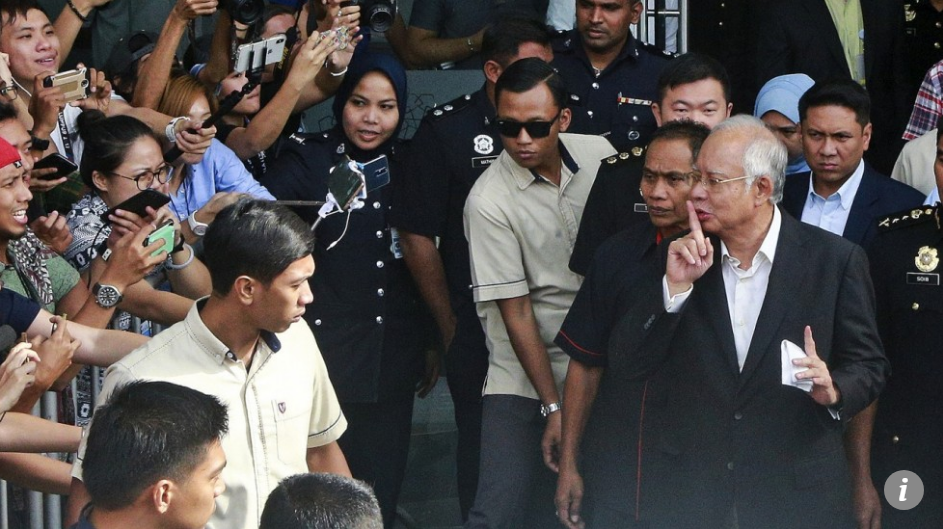
For now though, the gag order remains, and talking about the ‘merits of the case’ even on social media will mean that you’d be charged with disrespecting the court. It would be a shame though if the gag order continues, especially seeing that the media’s duty is to report on matters that are important to the country and its people.
“I disapprove of what you say, but I will defend to the death your right to say it,” – Evelyn Hall
- 721Shares
- Facebook628
- Twitter9
- LinkedIn16
- Email20
- WhatsApp48



